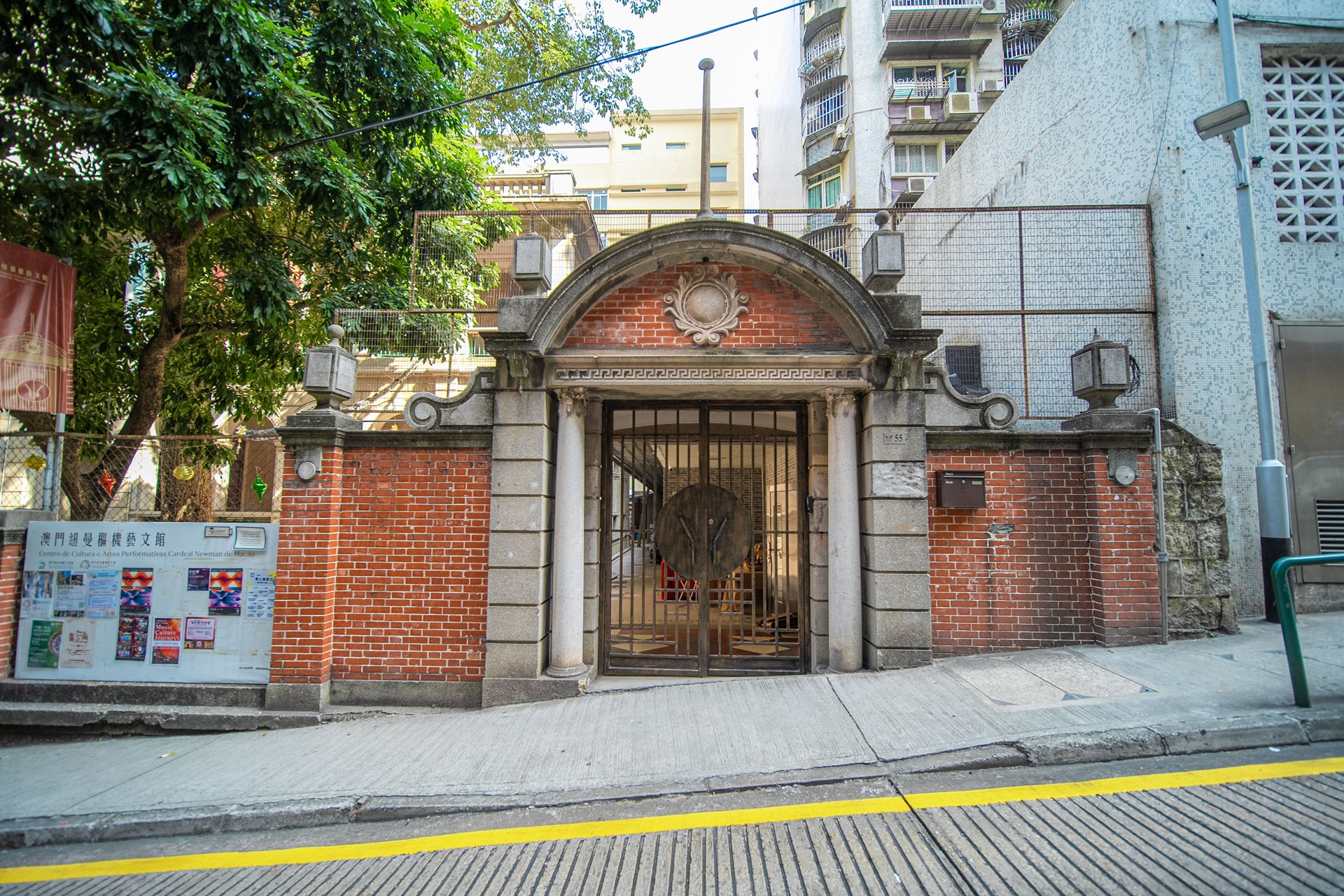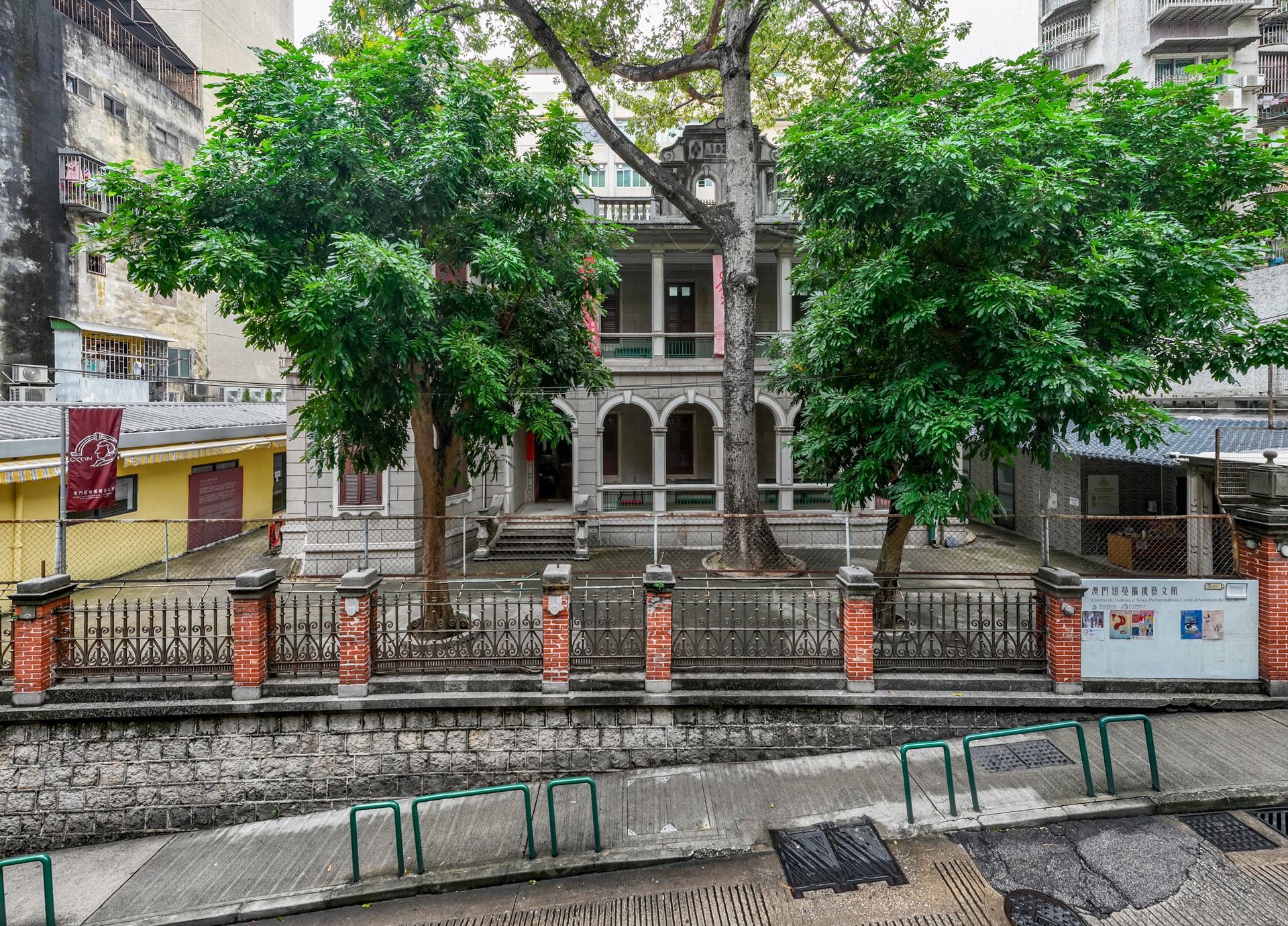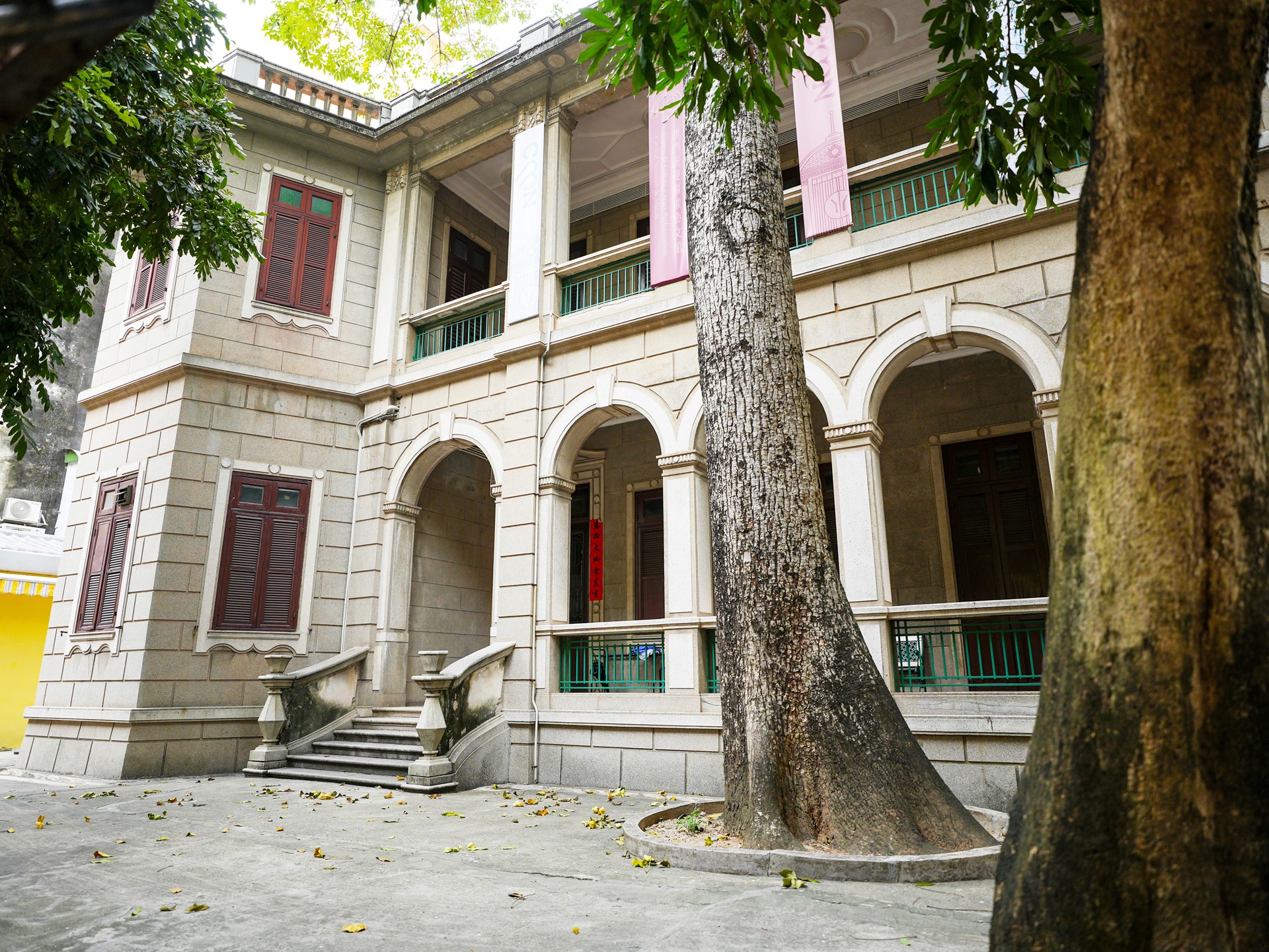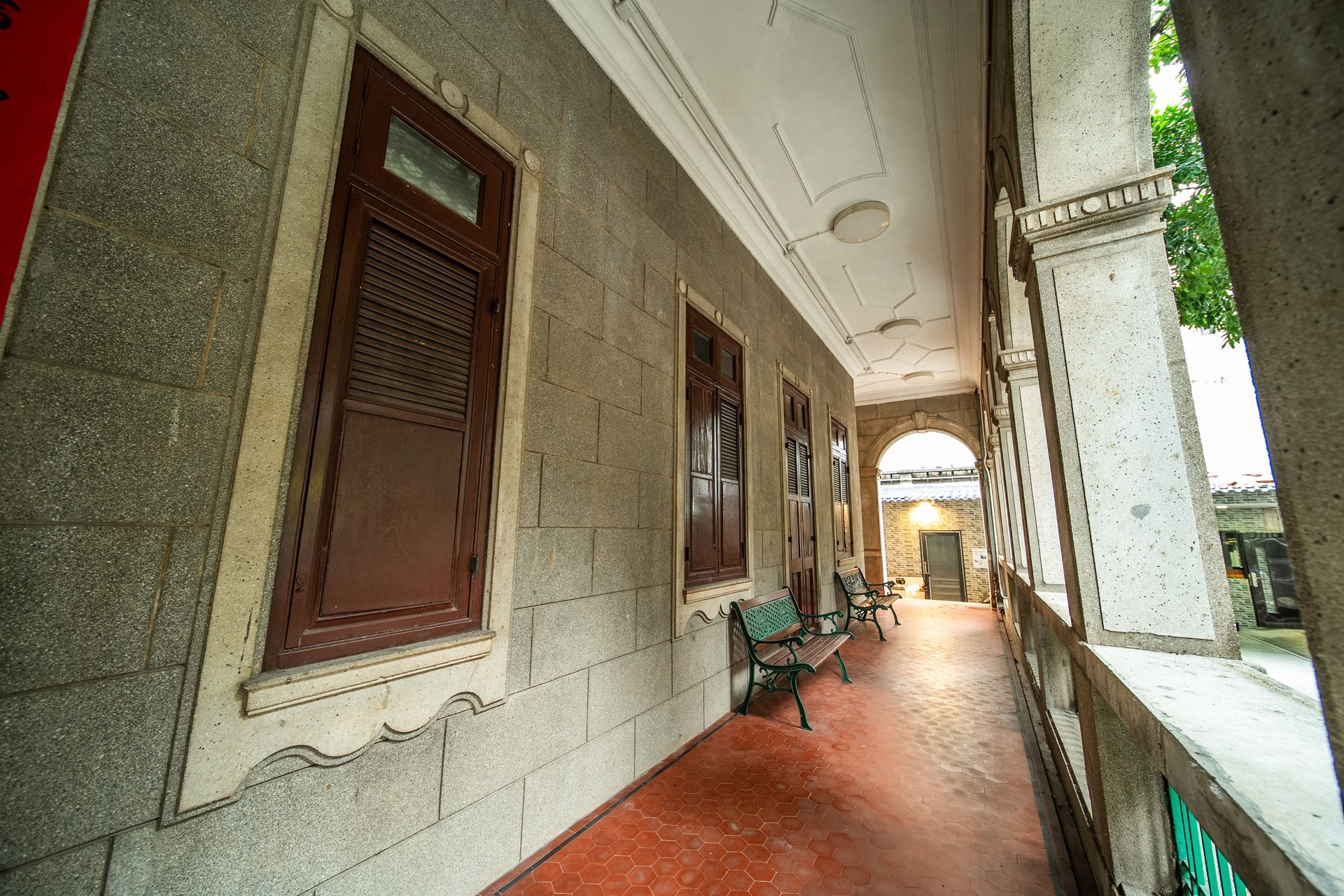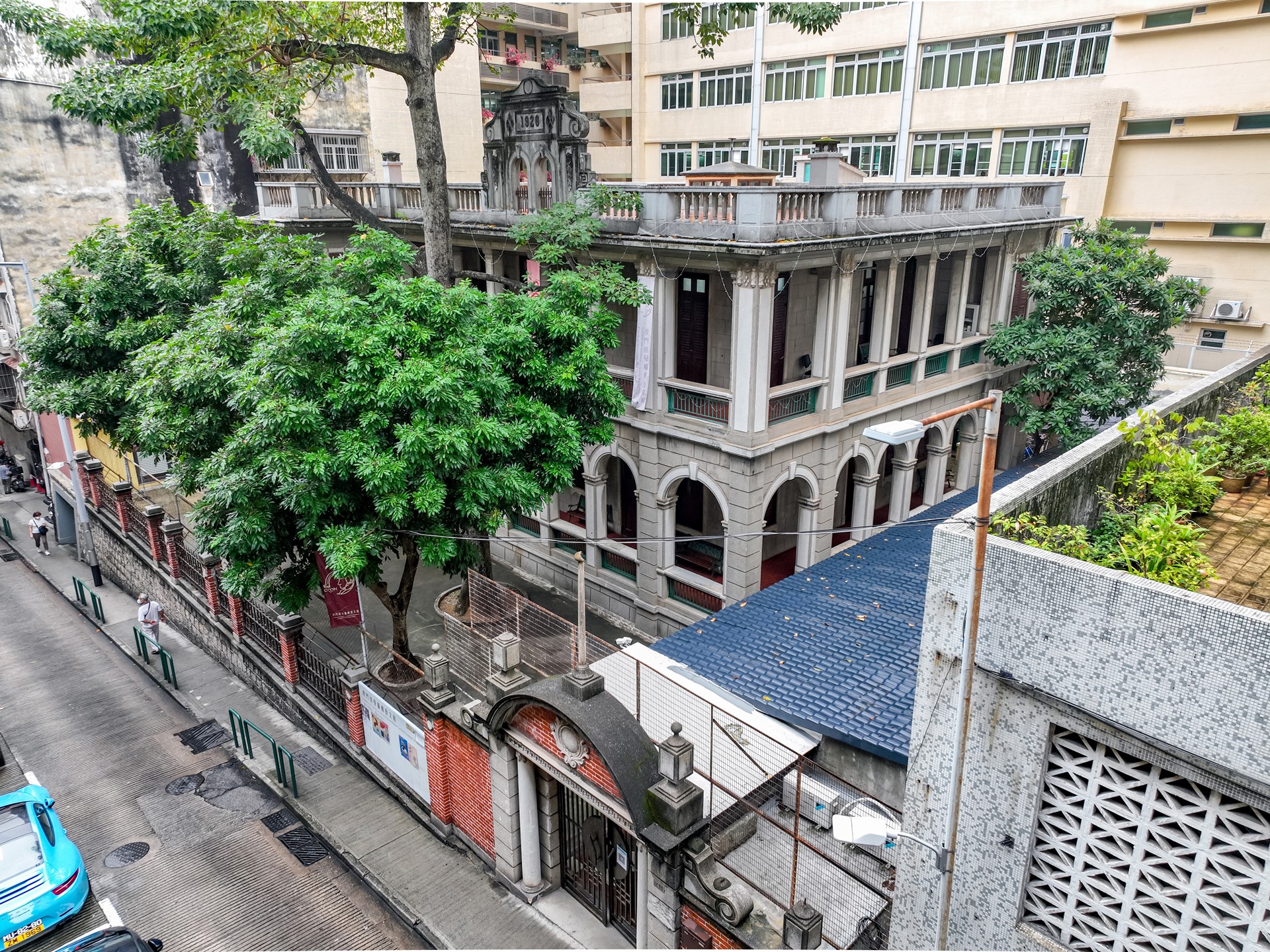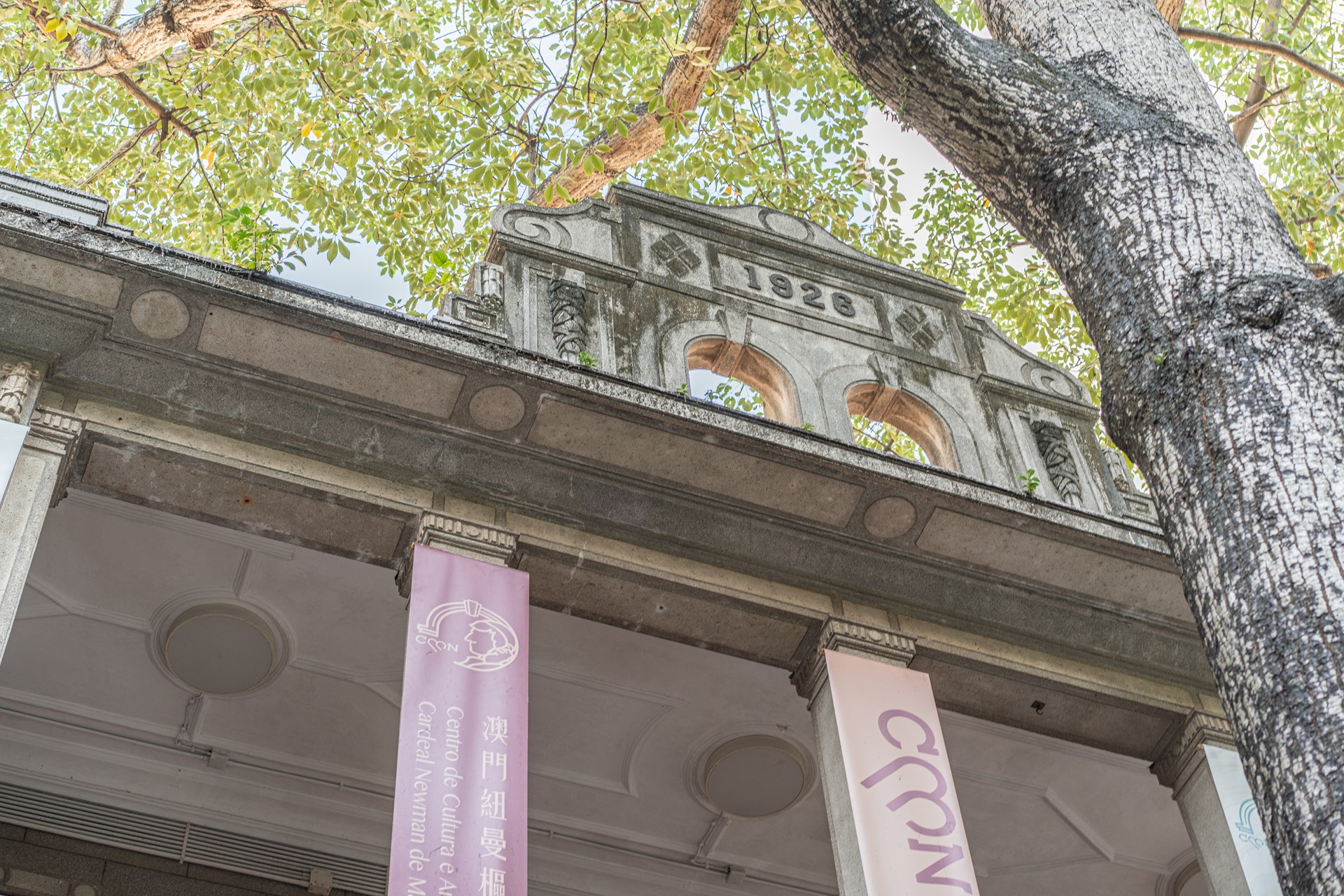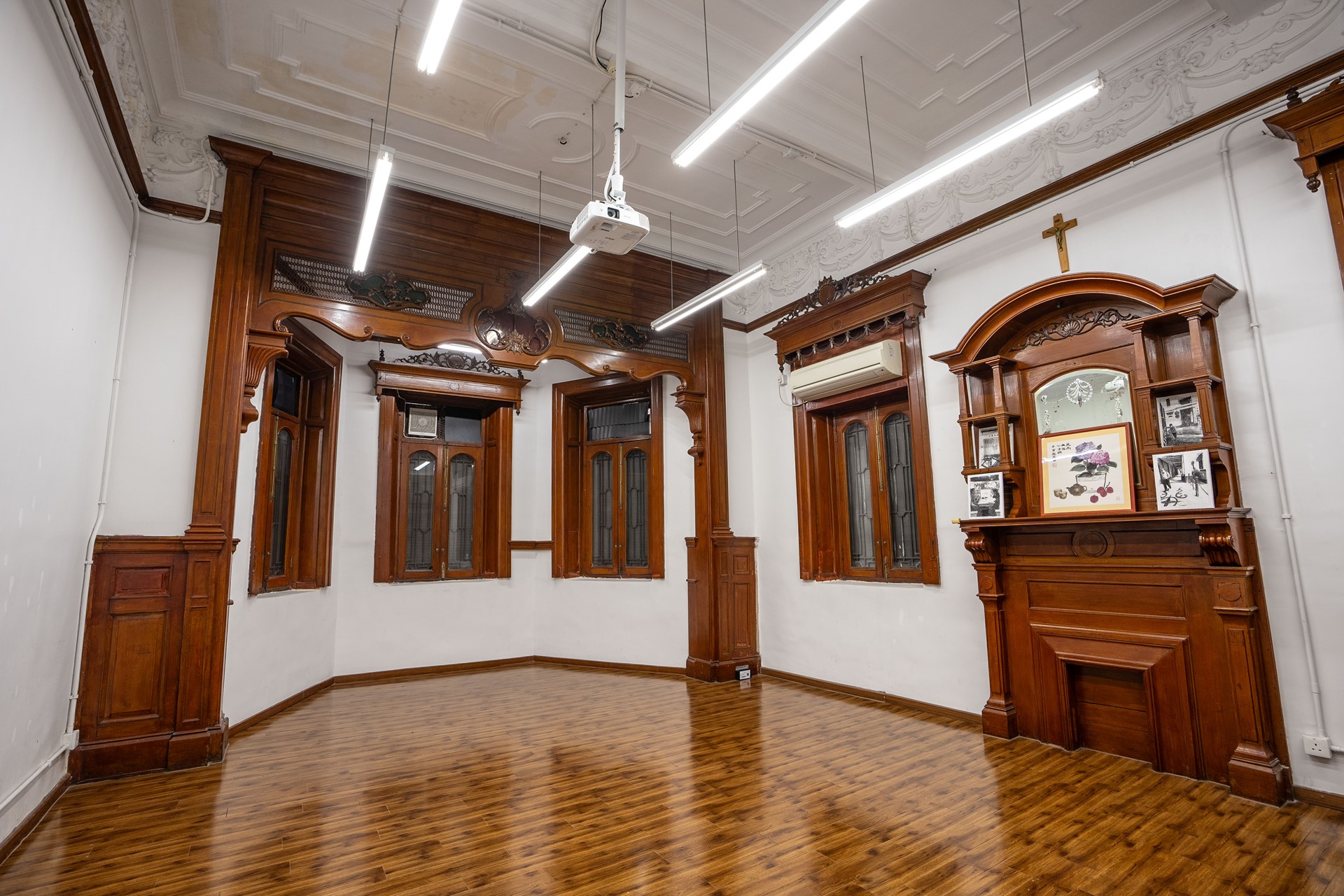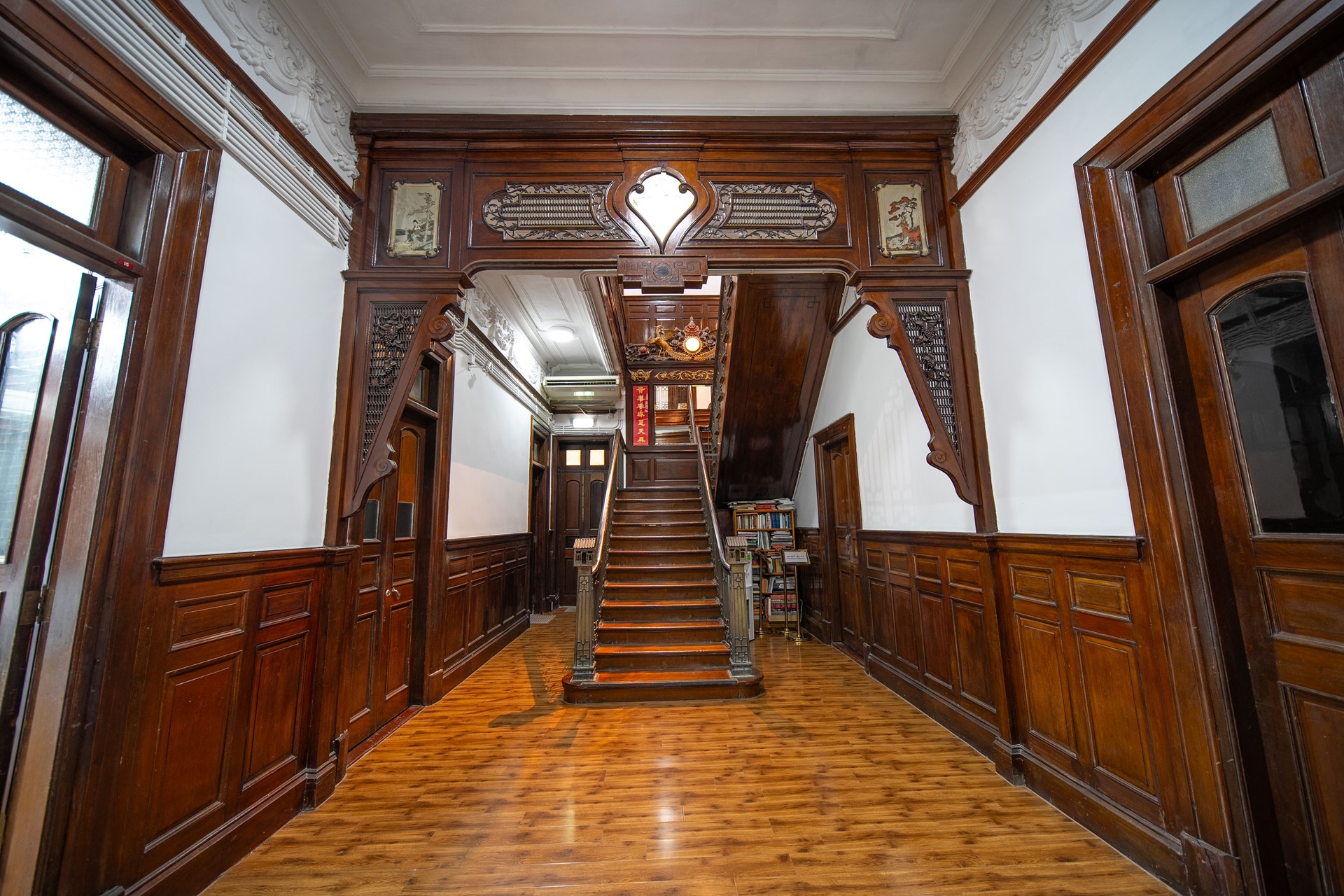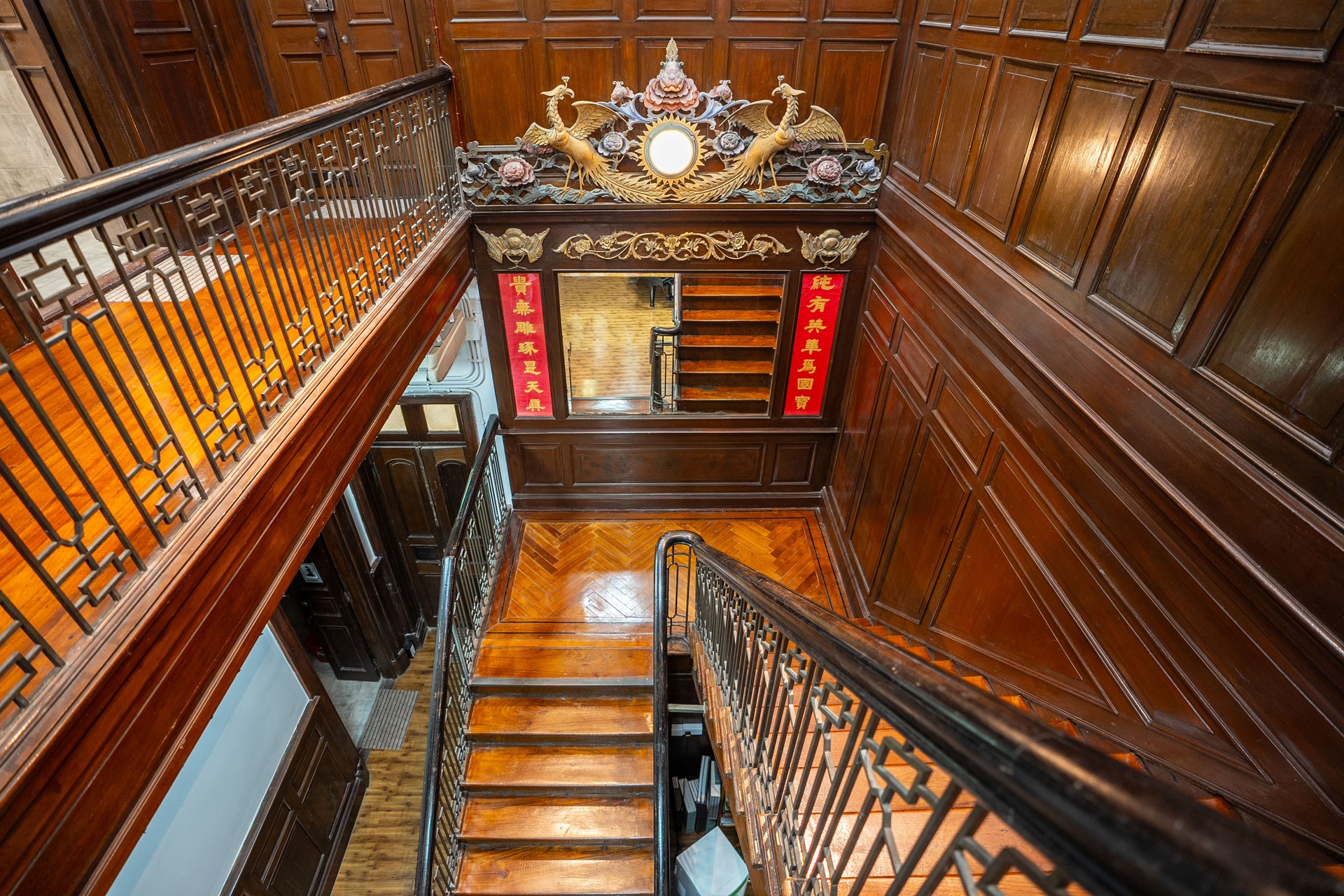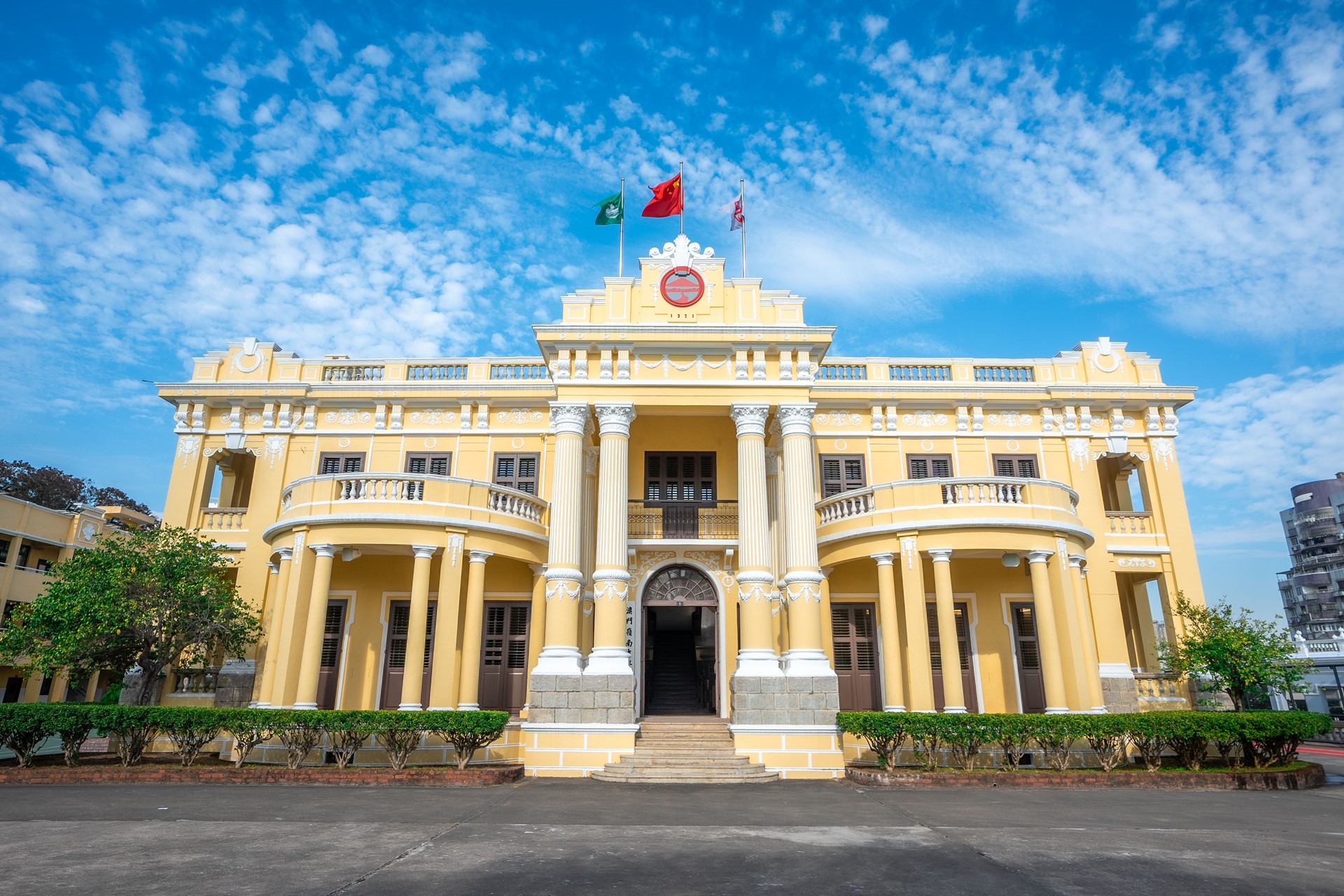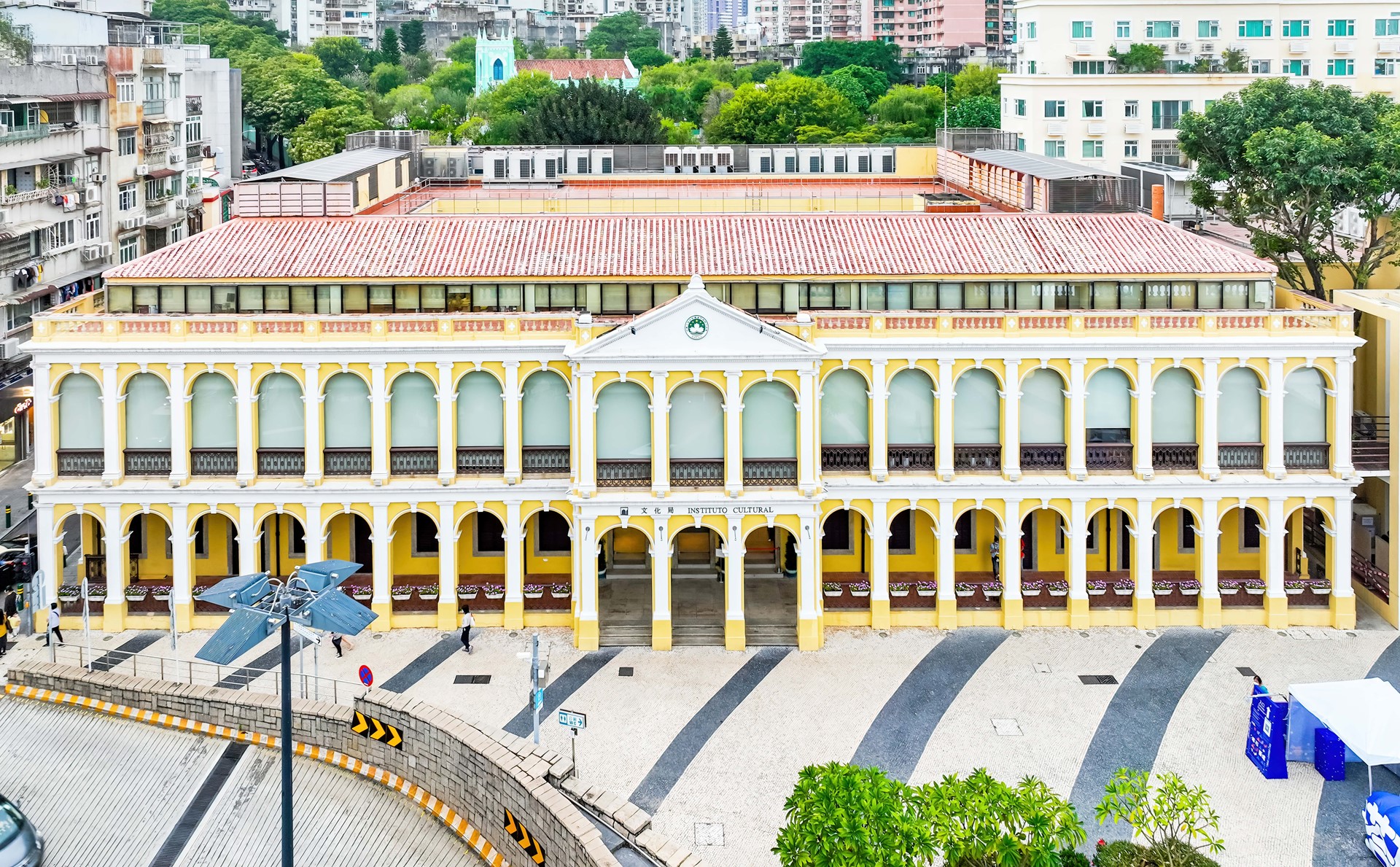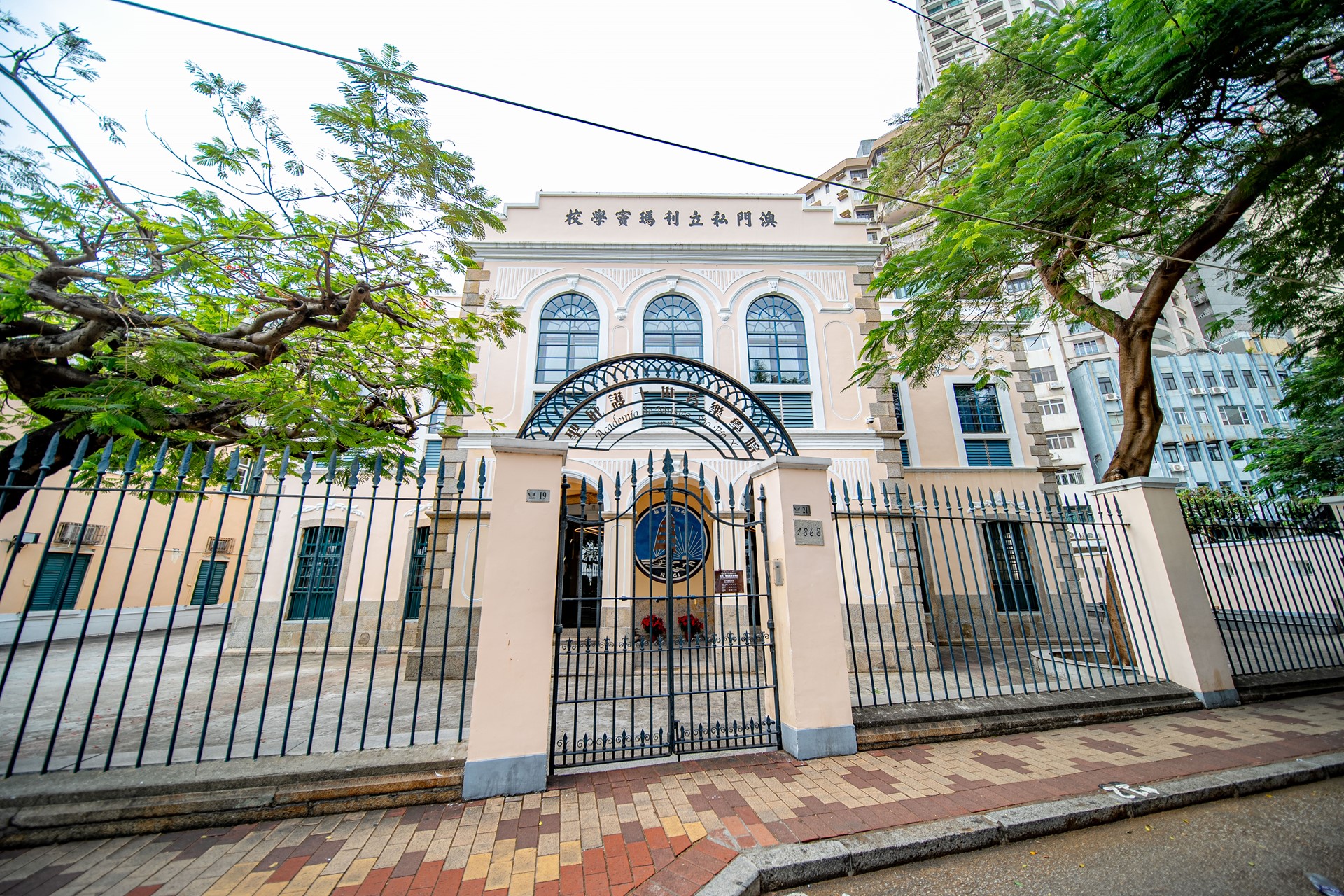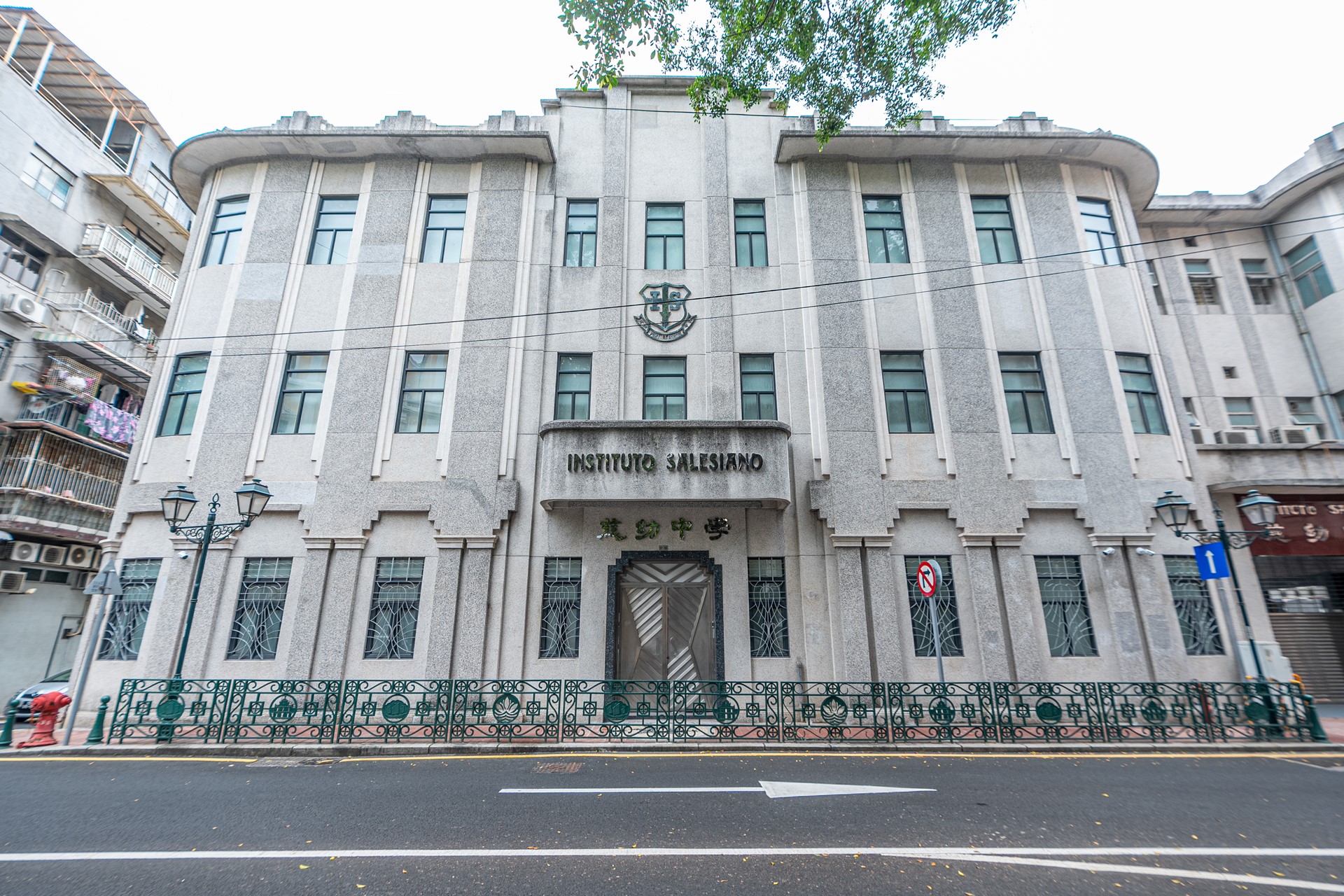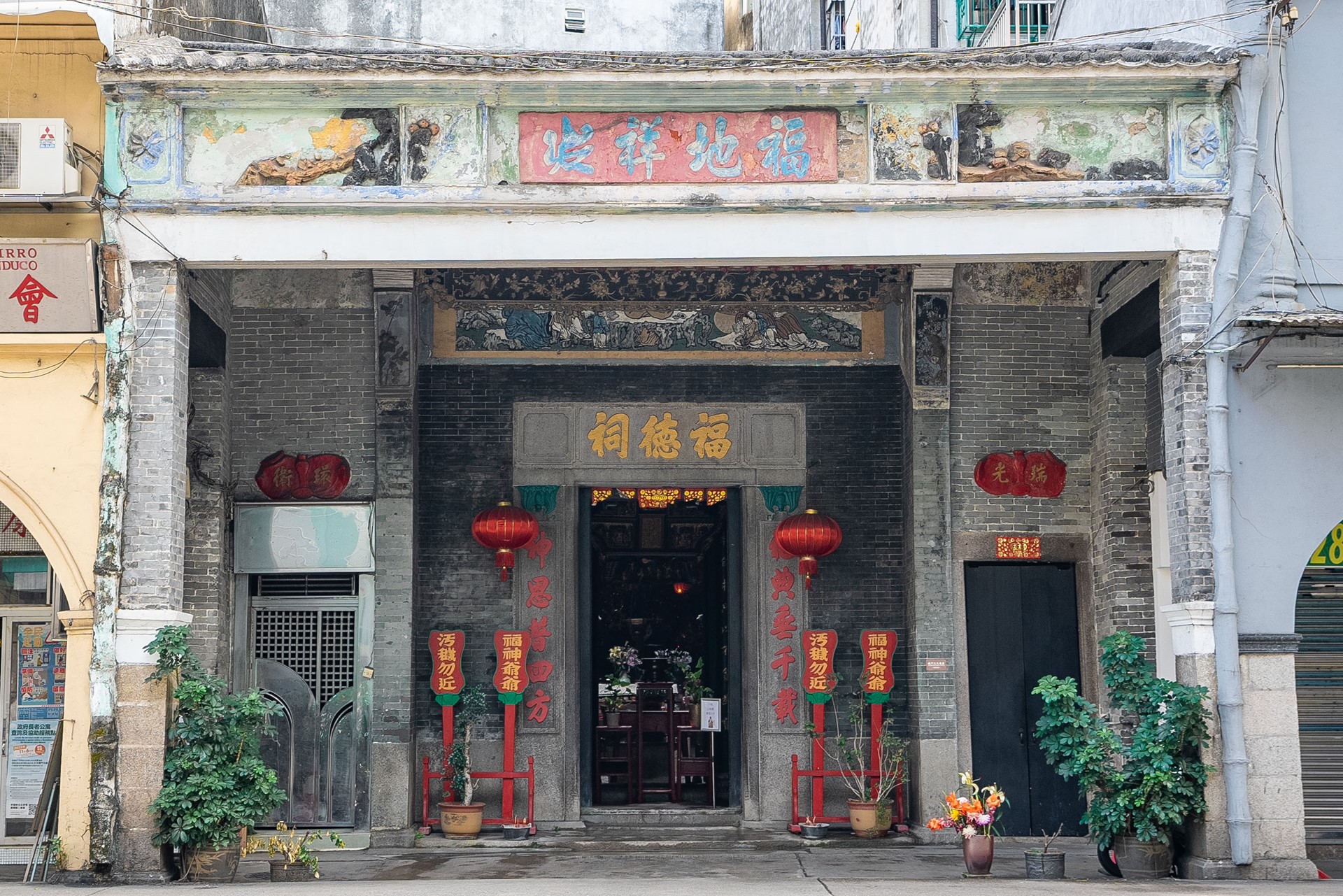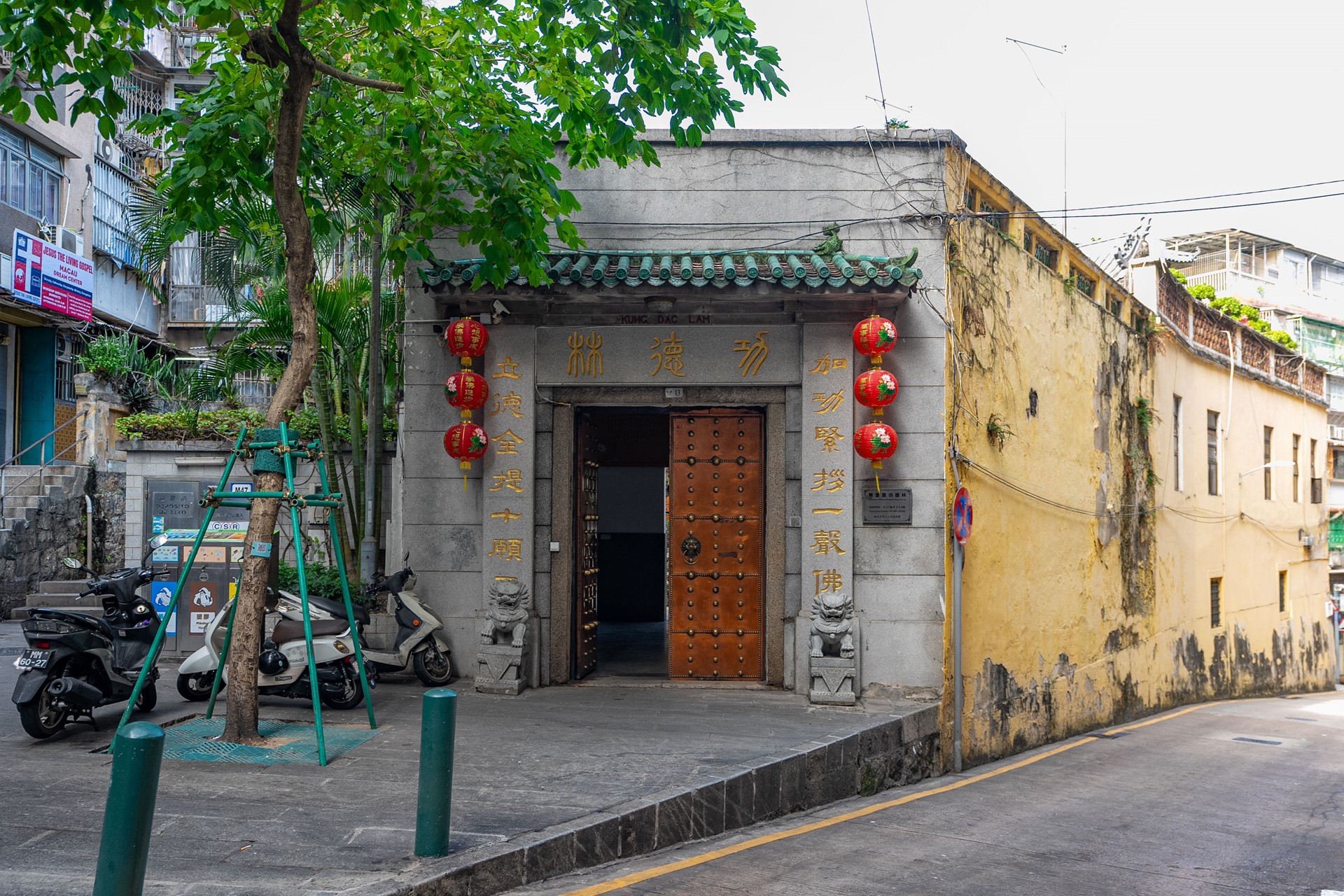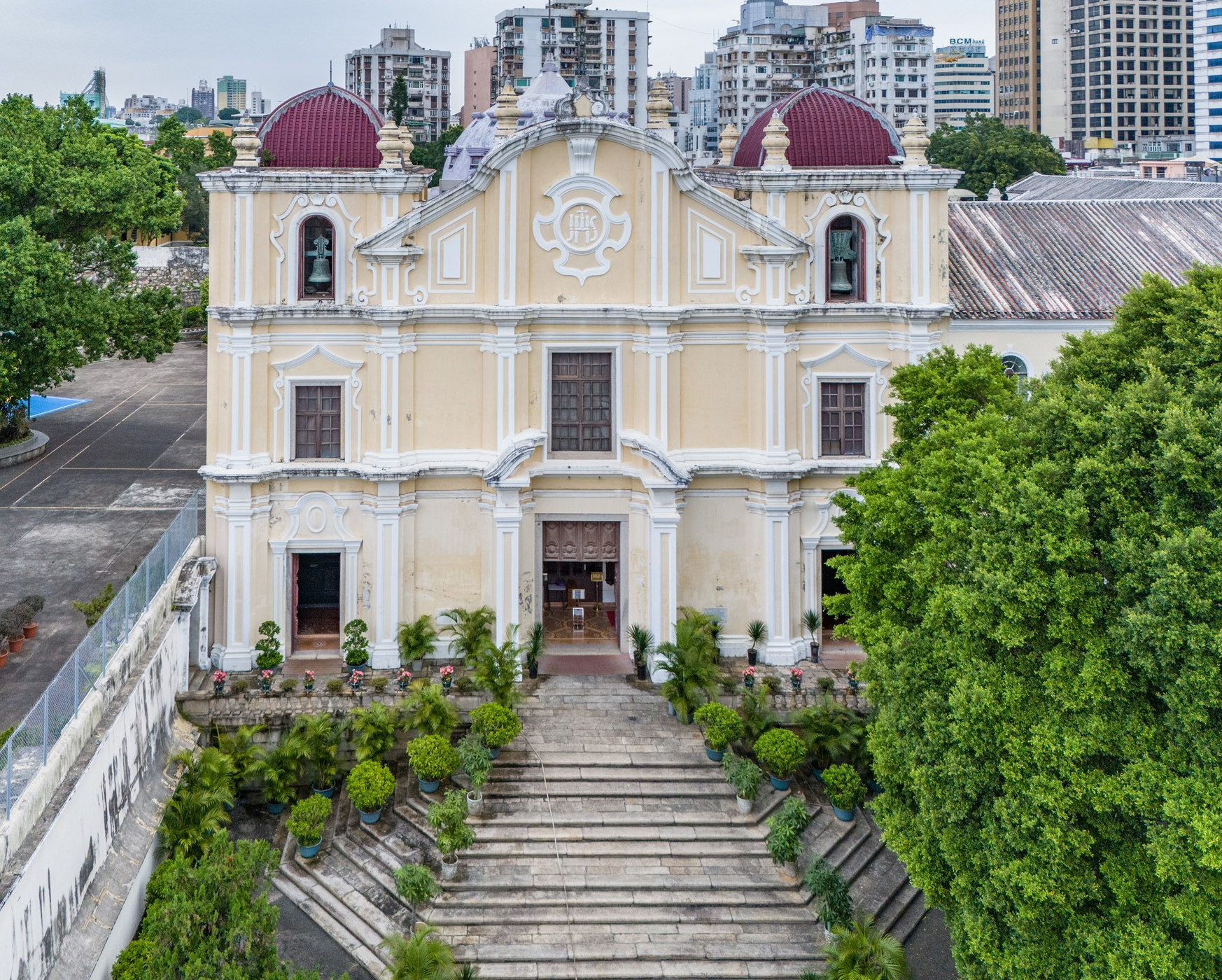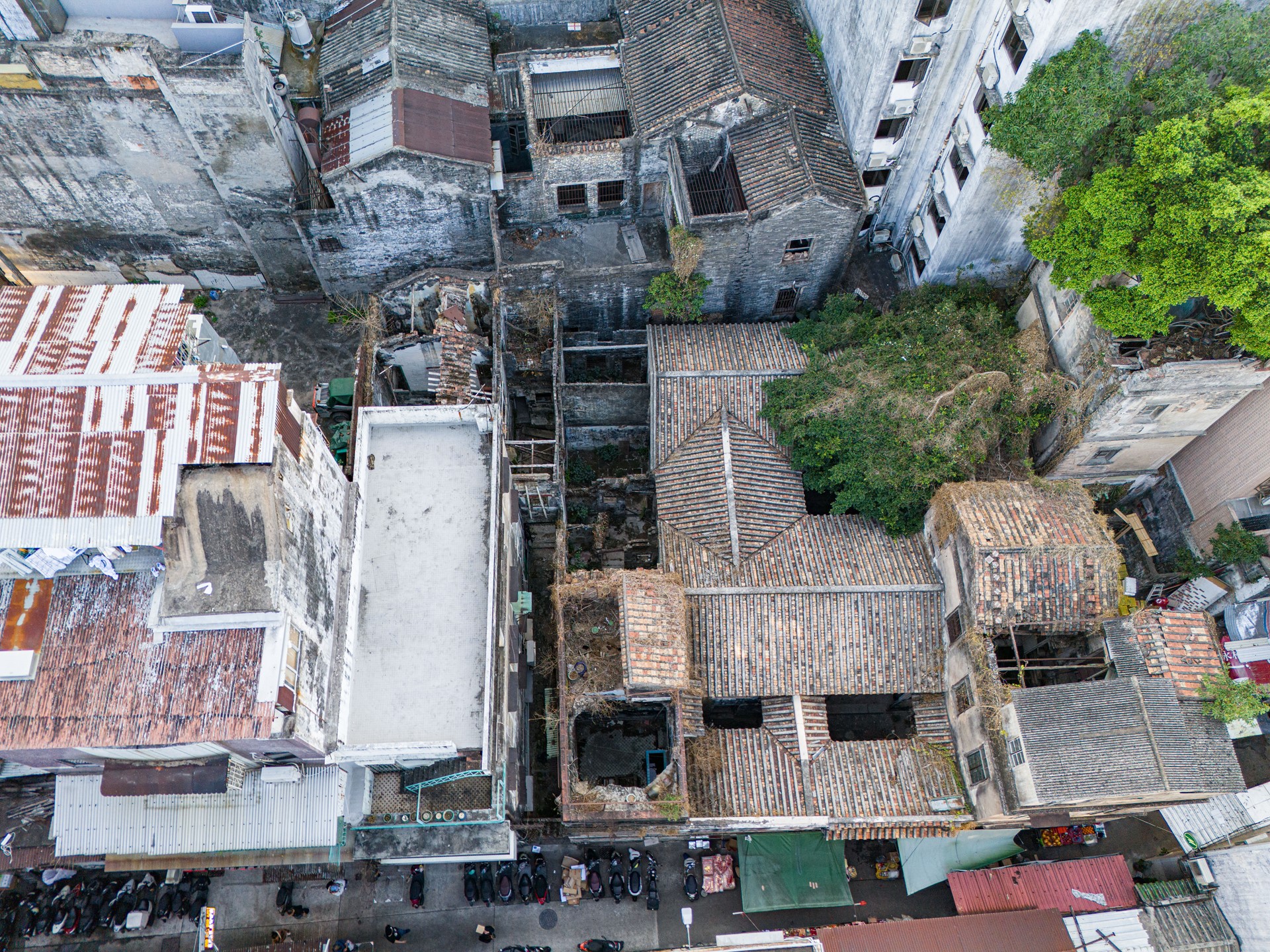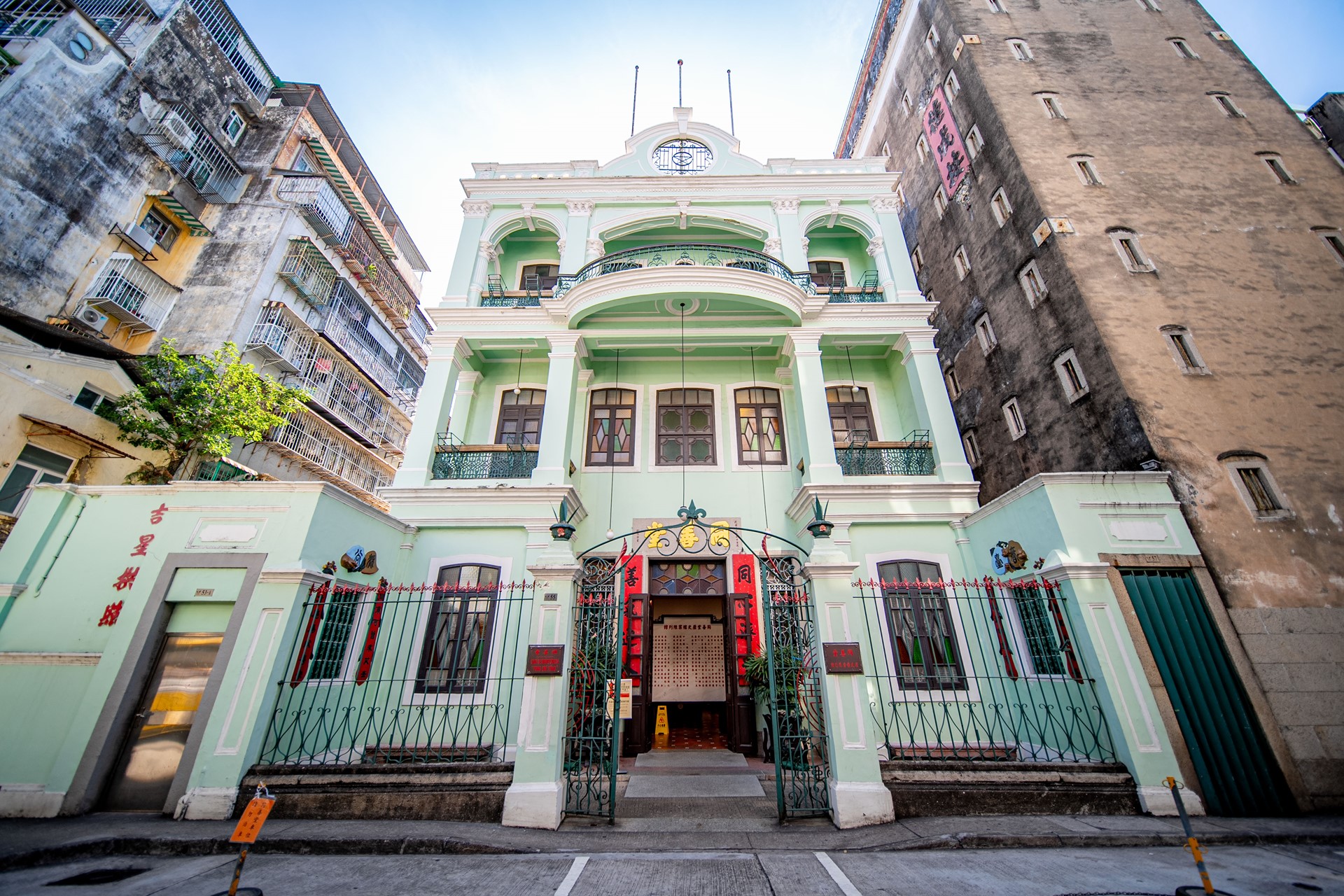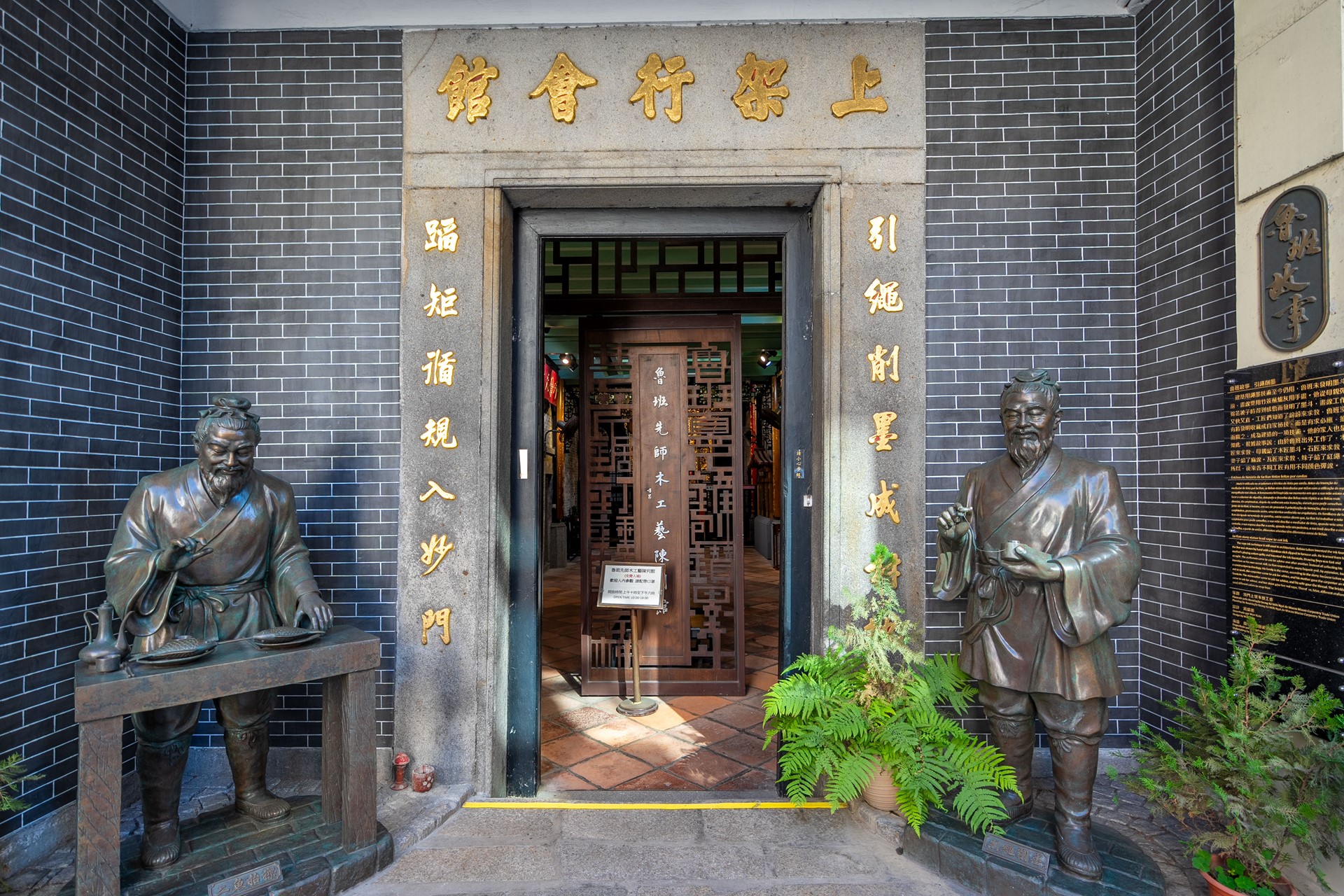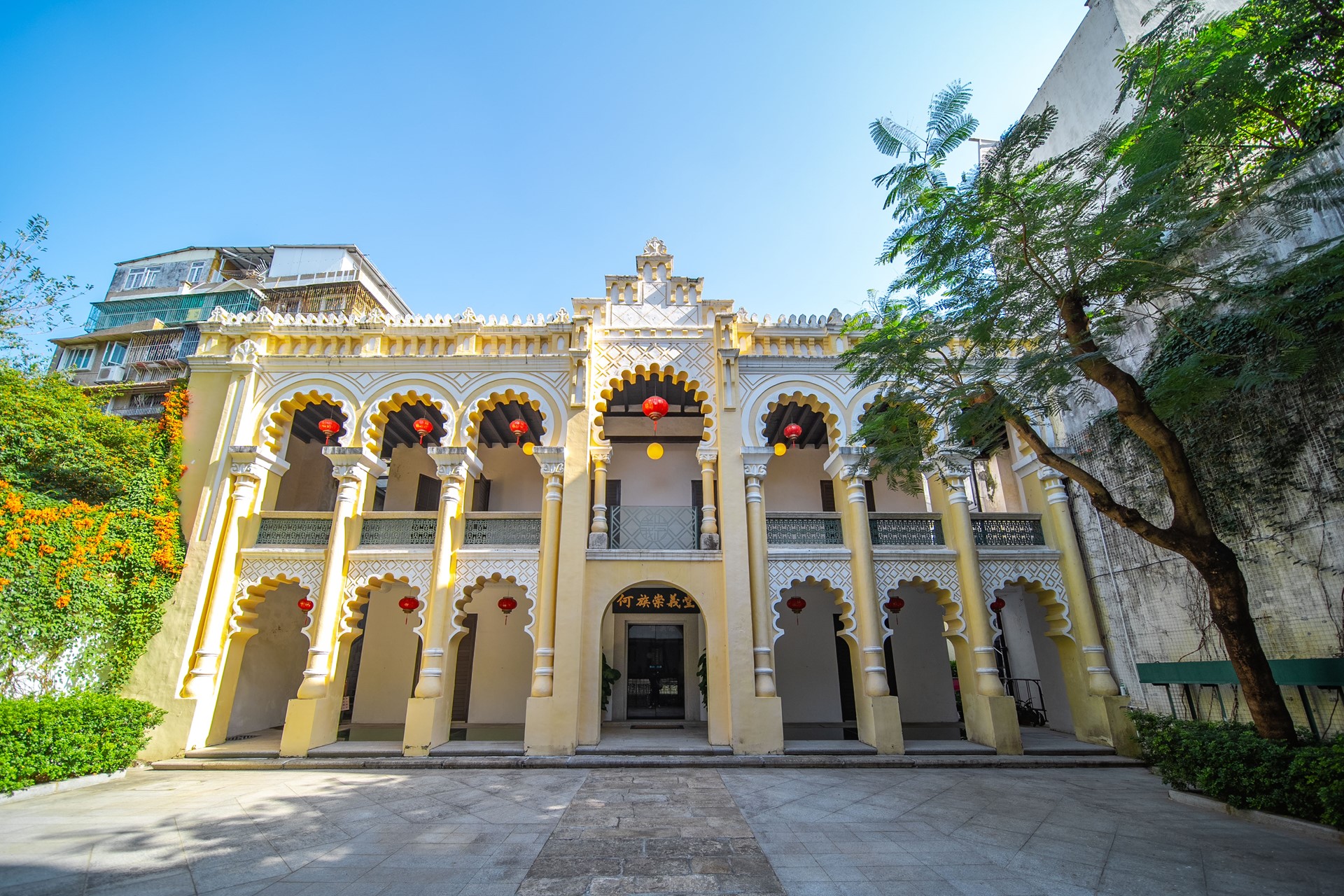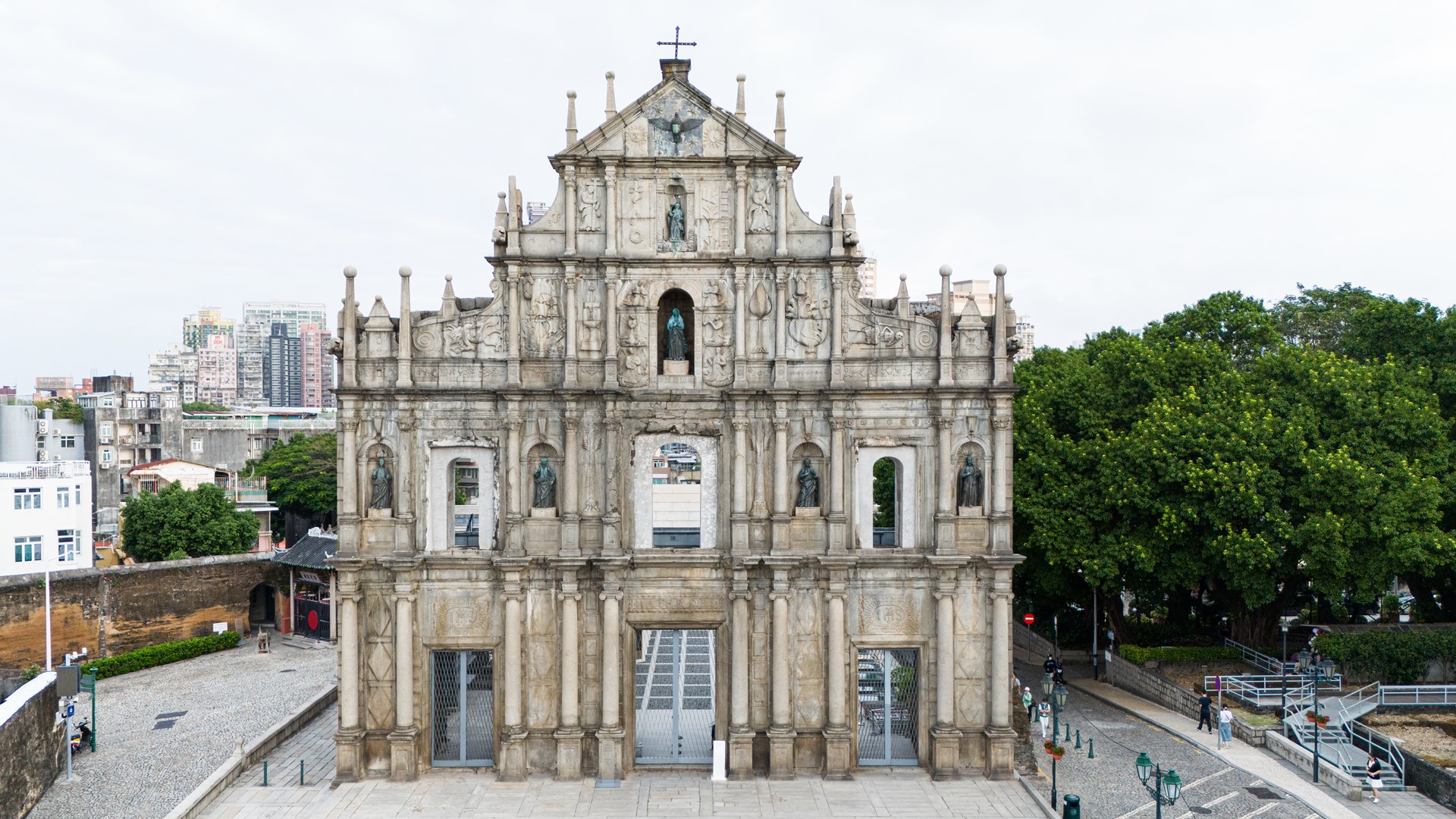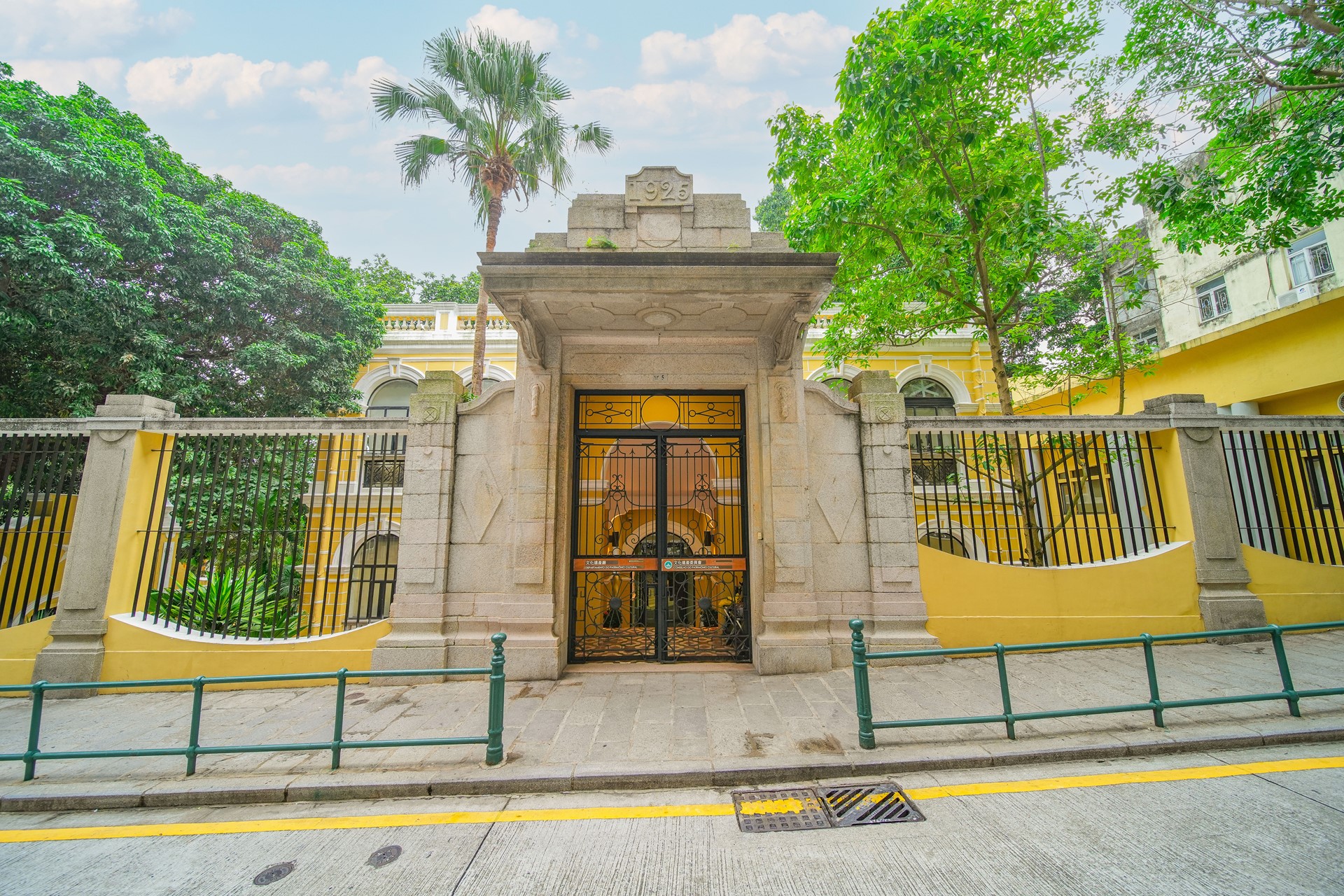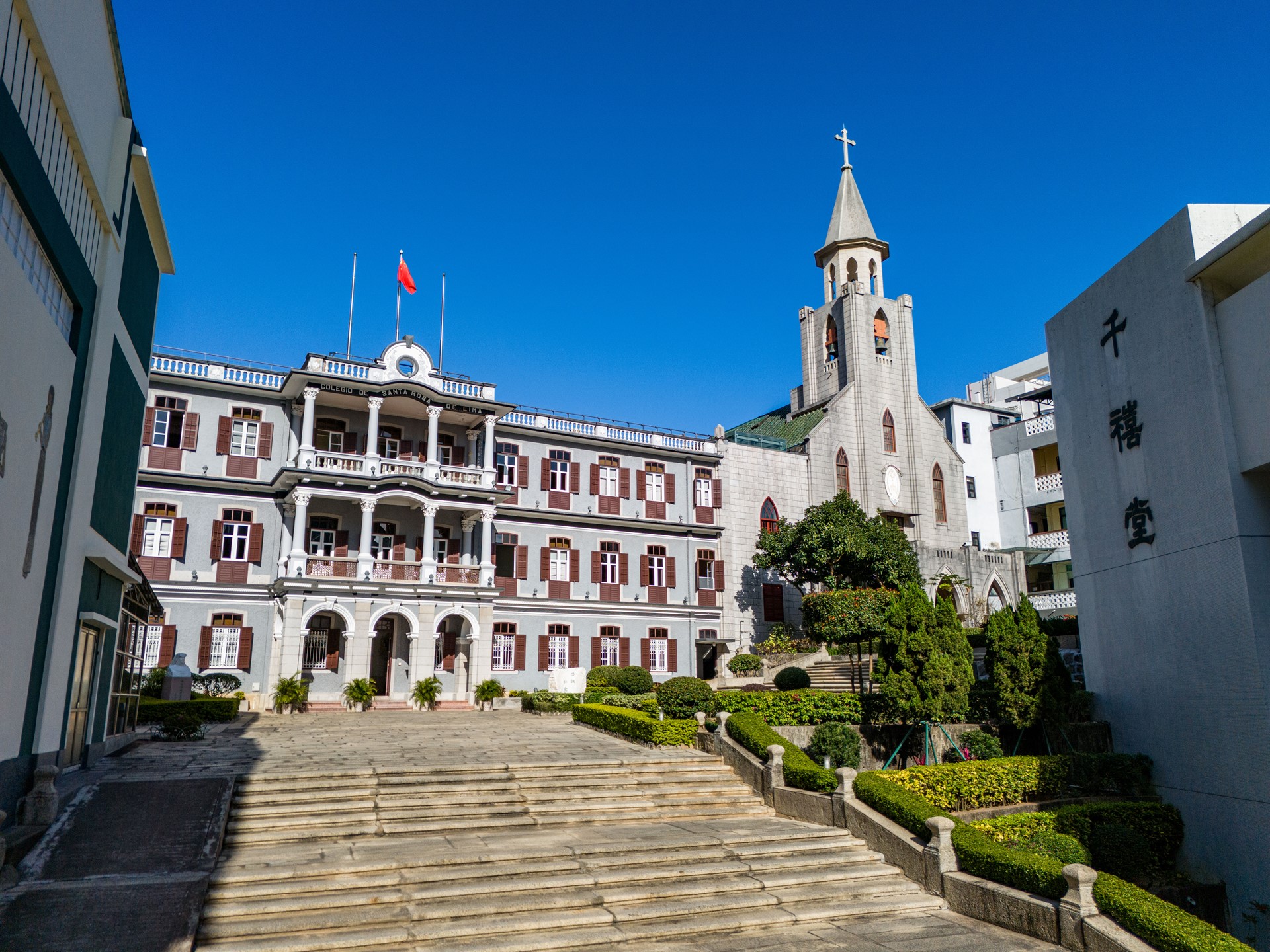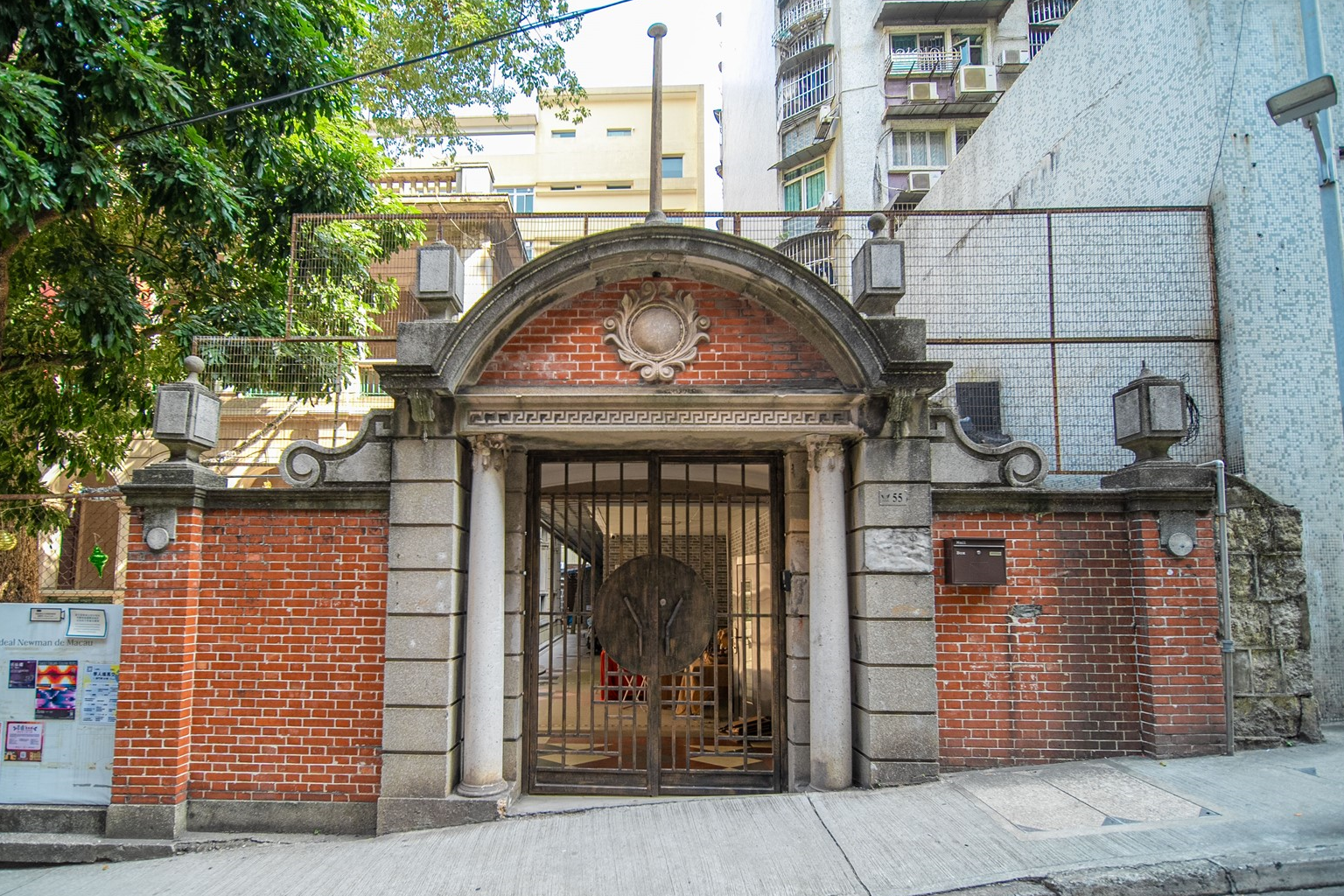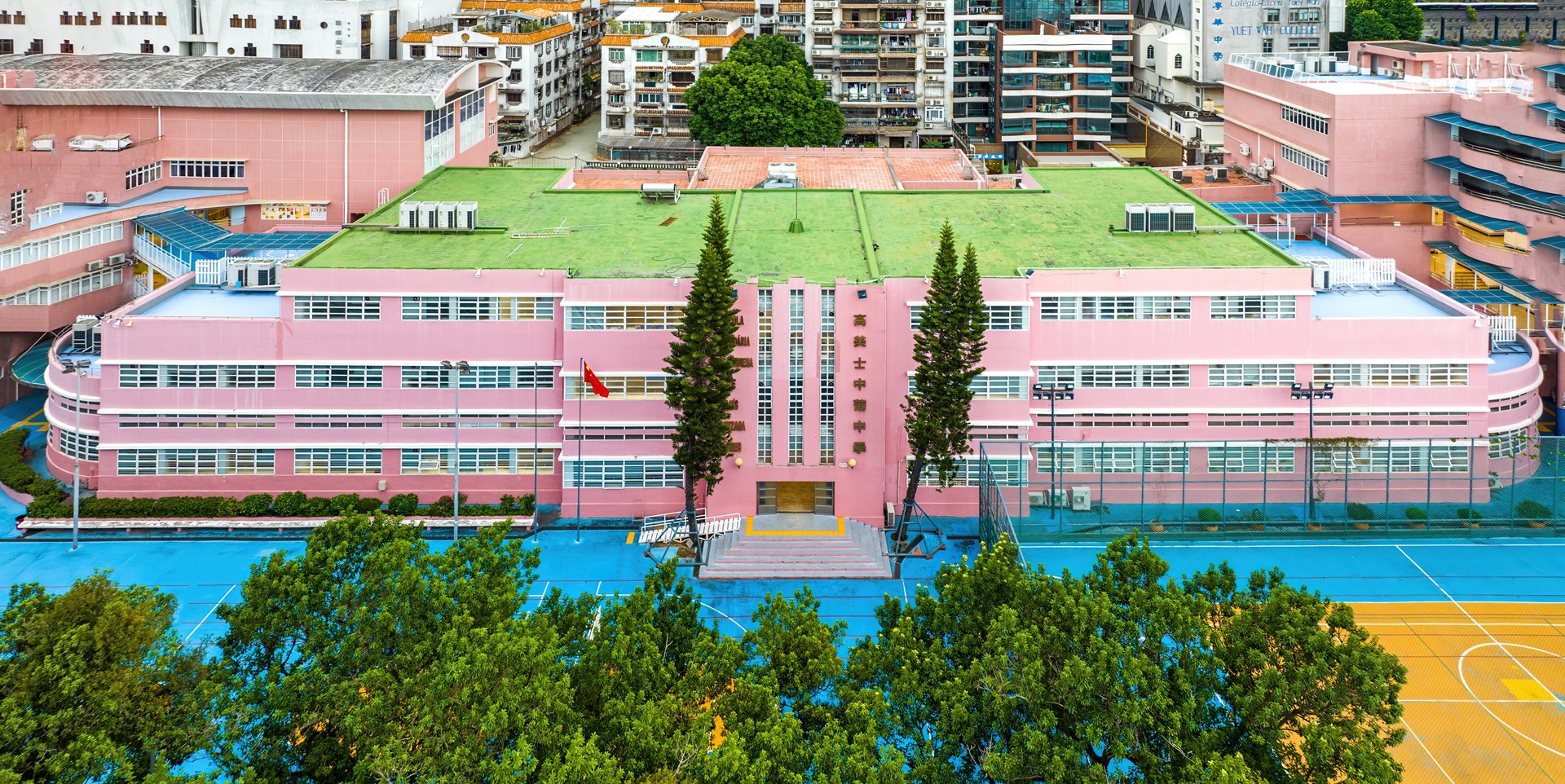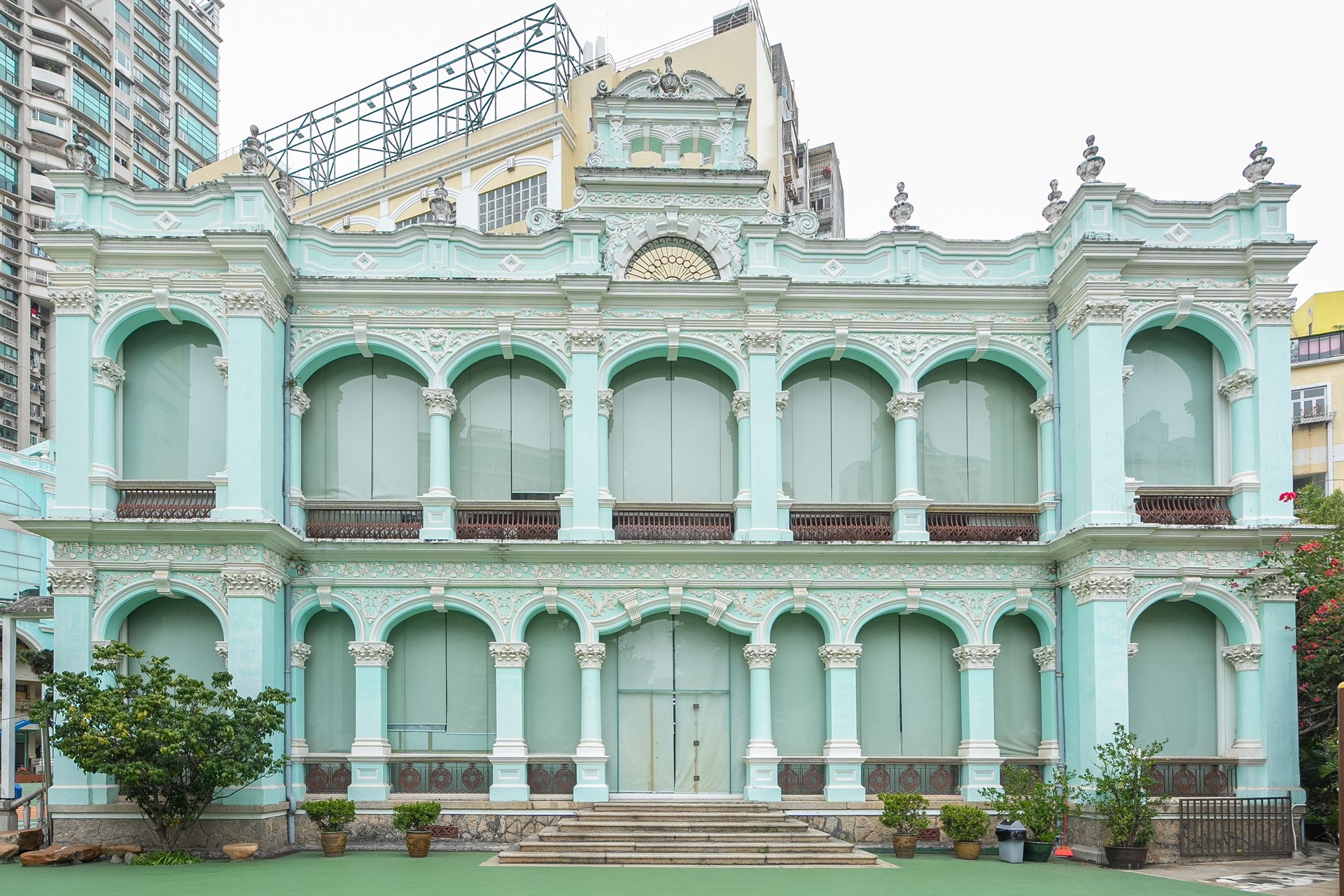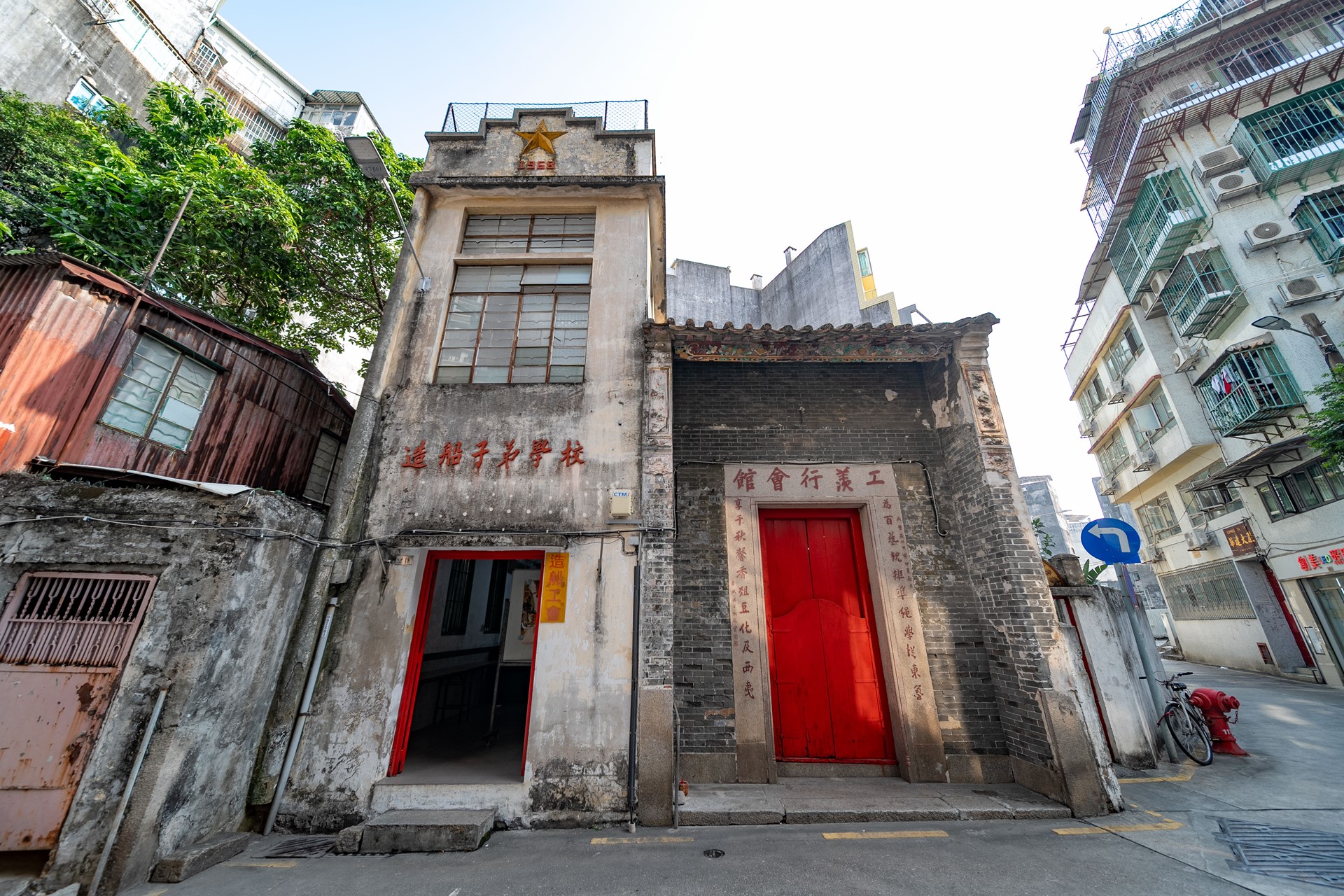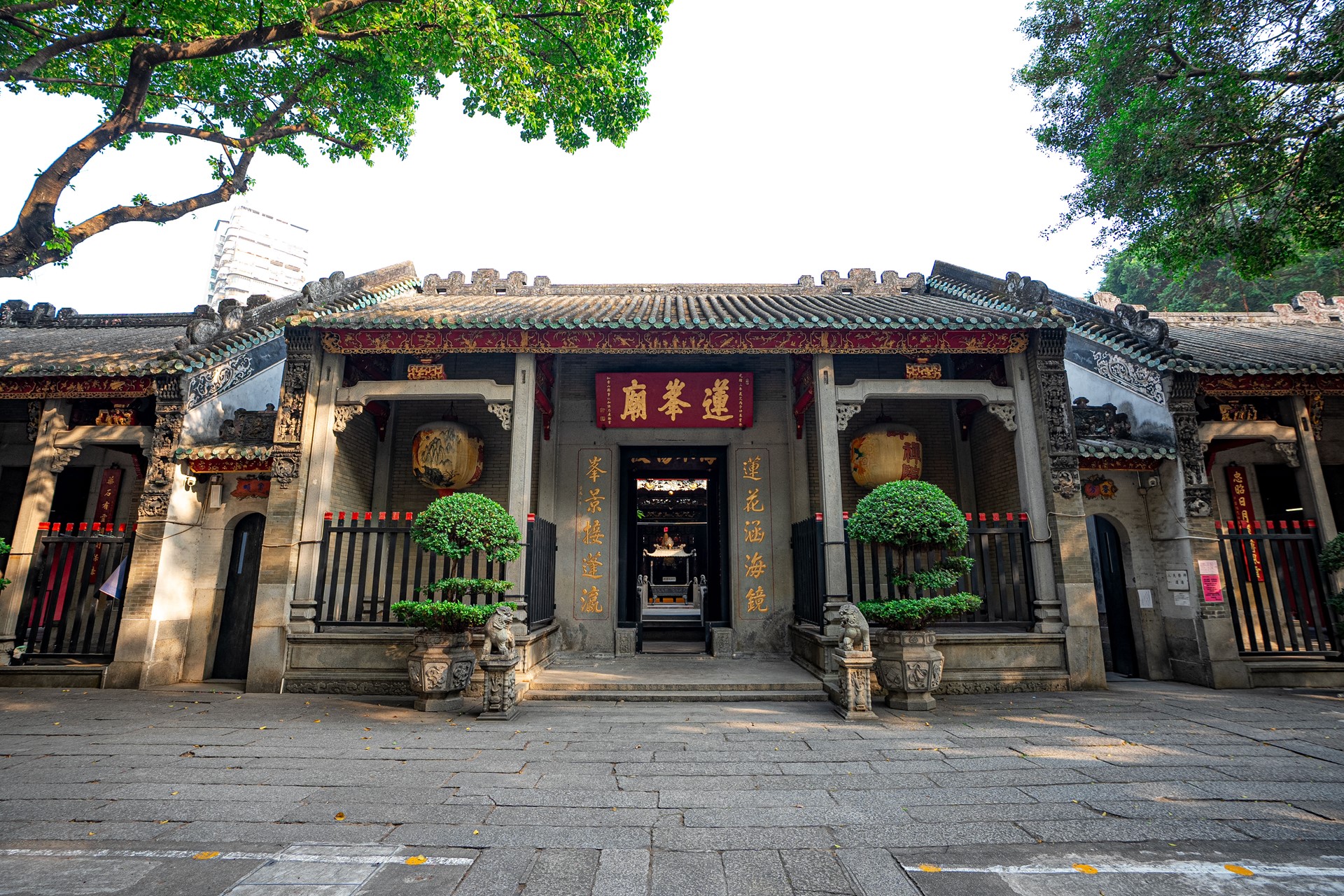The building at no. 55 Calçada da Vitória was completed between 1926-1928, serving as the residence of the famed overseas Chinese merchant Hee Cheong. After his passing, the building passed through several hands before finally being acquired by the Diocese of Macau. The two-story building's facade and interior decorations have largely been preserved in their original form, including eclectical curved pediment and the traditional Chinese wooden carvings, blending Chinese and Western characteristics. It is one of the few well-preserved residences of this style in Macau.
In 1925, Yuet Wah School was founded in Guangzhou, with a primary and a junior high section open to both boys and girls. In 1928, it moved to Macao to continue its operations due to political instability in Guangzhou, setting up a campus at no. 16, Estrada da Vitória. Later the school was renamed Macao Yuet Wah College. In 1942, Yuet Wah College was handed over to the Salesians of Don Bosco. As the number of students increased rapidly, space became insufficient, the Diocese of Macau then lent the building no. 55, Calçada da Vitória, which was renamed Kam Yuen Building, to serve as the school’s facility.
In 1948, Yuet Wah English Section was established, classrooms and staff rooms were set up at Kam Yuen Building. With the completion of new buildings, Kam Yuen Building was returned to the Diocese of Macau in the year 2000. Currently, no. 55, Calçada da Vitória serves as the premises of the Macao Diocese’s Cardinal Newman Centre of Cultural and Performance Arts.
In the 1920s, Yuet Wah College moved from Guangzhou to Macao and became one of the first private schools to offer a Chinese secondary school curriculum at a time when secondary education was not yet widespread. Later, it created an English Section to meet the societal demands for bilingual education. Yuet Wah College stands as a testimony to the development of modern education in Macao.
